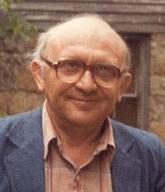 Addressing the question “Is it possible to write fiction about the Holocaust?”, Israeli author Aharon Appelfeld told a large gathering in Toronto recently that man’s nature compels him “to express not only his joy but also his pain” and that concentration camp inmates sometimes sang songs that “were as mighty as the suffering from which the need (to sing) arose.”
Addressing the question “Is it possible to write fiction about the Holocaust?”, Israeli author Aharon Appelfeld told a large gathering in Toronto recently that man’s nature compels him “to express not only his joy but also his pain” and that concentration camp inmates sometimes sang songs that “were as mighty as the suffering from which the need (to sing) arose.”
Speaking to an audience of several hundred people at York University, the celebrated author of more than 30 novels including Badenheim 1939 and The Age of Wonders said that some critics assert that literature should not enter the “fire zone” of the Holocaust, and that “it is best to let the numbers and the documents speak.”
“I have no wish to belittle that claim,” said the small soft-spoken writer. “But I wish to point out that the numbers and the facts were the murderers’ well-chosen means.”
Appelfeld noted that much has already been written about the Holocaust, but only a small part of it is literature. “I do not include fantasies or those commercial stories and scurrilous writings which have inundated us since the end of the Second World War. Literature with a true voice and a face you can trust, is very scarce. The number of such works can be counted by a child.”
What exists in abundance, Appelfeld said, is testimony — a rich body of first-person accounts by survivors. These are often characterized by a certain inarticulateness and lack of introspection “as if what had happened had happened outside of themselves,” he said. Many also harbour an abiding silence: “While the survivor reveals, he also conceals.”
In most portrayals of reality, art “always demands a certain intensification,” Appelfeld noted. “But that does not apply to the Holocaust . . . . Everything already seems so unreal that it belongs to mythology, and there is a need to bring it down to a human realm.”
“There is a tendency to link the Holocaust to mystical terms,” he continued. “It’s understandable but very dangerous. Murder which was committed with evil intention must not be explained in mystical terms. This is not mysticism here but a blow which was committed against the central pillar of the Ten Commandments.”
Many of these themes were repeated in the symposium on Appelfeld’s works that followed. The participants were Jonathan Rosen, the New York-based novelist and culture editor of The Forward; Chava Rosenfarb, the ex-Montreal Yiddish novelist now living in Toronto; and Dr. Vivian Rakoff, a Toronto psychiatrist and literateur.
Rosen recalled his first reading of Badenheim 1939, a novel about a resort town near Vienna that fills with vacationing middle-class Jews “who persist in their pleasures” in the summer of 1939 even as certain officials “are slowly tightening the noose” around their necks.
“Appelfeld is writing with bitter ironic precision,” Rosen said, adding that the ending, involving unseen trains, haunted him for days. “The irony of this book was so sharp and so dark that it took my breath away.”
Rosenfarb, who like Appelfeld is a survivor, berated him for keeping the Nazis out of his books and “giving us no target with which to direct our rage.” She also asked why his novels are almost always about 200 pages long — “Is the flow and ebb of his inspiration so rhythmically measured?” — and noted that the author, in her opinion, seemed to dislike Judaism and was preoccupied with conversion to Christianity.
Dr. Rakoff vigorously defended Appelfeld, saying “We do not need to be told what the Nazis did (in Appelfeld’s books) because we bring this knowledge to the work.”
“In Badenheim 1939, the people were presented as almost foolish because they could not understand what was happening to them. How dare we presume upon them our retrospective knowledge and blame them for not knowing what was going to happen next?”
He also praised the “corset of form” through which Appelfeld limits the size of his works. “This is an author who is not unconscious of the horrors to which he does not allude, and who lets the reader fill in the huge gaps which he leaves unfilled because they’re unfillable.”
“Appelfeld makes an extremely important moral statement,” Dr. Rakoff continued. “He allows the explicit moral to lie hidden in his text because he is too fine a writer to render it in so many words.” ♦
© 2000





